|
On Saturday the 29th,
I had come home around 1:30 in the afternoon to see a crow dive-bombing
something on the building behind mine. At first I thought it was
another crow, maybe one with a particularly interesting bit of
food, that was being harassed. Watching for a little while, I
got the idea that the bombee was a little bigger than the
crow, and that caused me to rush inside and get my camera and
long lens. If something looks a lot like a crow, only bigger,
it's probably a raven. I'd never seen a raven in my neighborhood
before.
Once I got back outside
with my camera, I found that the confrontation had moved from
the building into the sky. There were, in fact, two ravens, and
the crow seemed intent on bothering one of them in particular.
Here's a shot showing both ravens and the crow; the ravens have
their wings spread and the crow has his folded a bit, in a dive
towards the bottom raven.
|
|
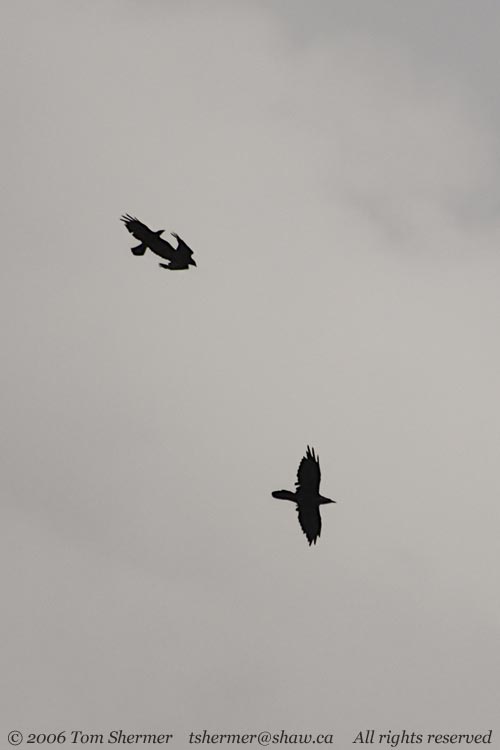 |
|
The species involved
were our local ones, the Northwestern Crow and Common Raven. Soon
they had flown far enough away that photography was futile, and
I headed back inside.
I was only inside long
enough to change my camera back to its macro configuration, though,
and then I was back in the courtyard looking for subjects. I walked
around our lagoon and soon saw a bug with very long antennae on
one of the plants near a little bridge.
|
|
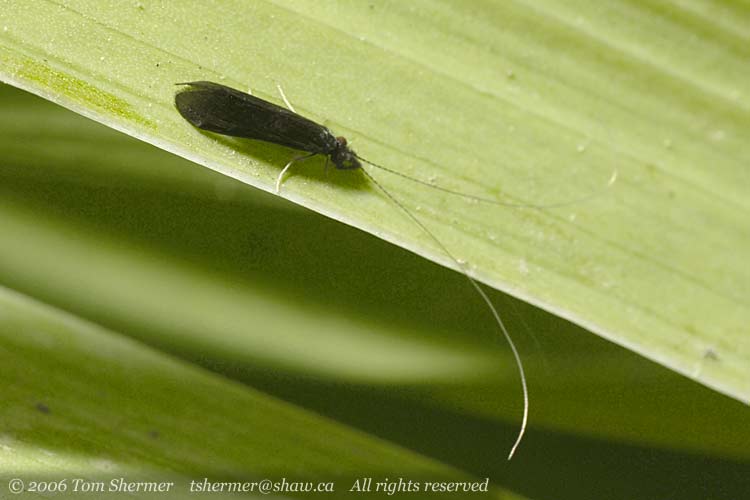 |
| This insect
is a Long-horned Caddisfly. Here's a more-closely cropped version;
this guy's eyes really stick out from the side of his head. |
|
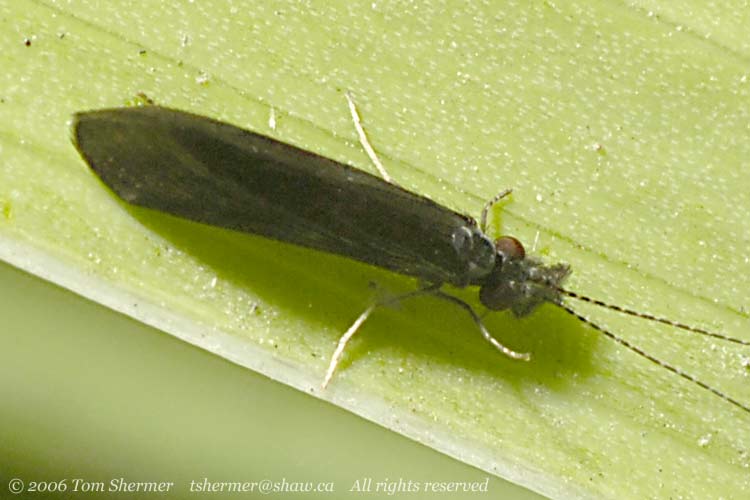 |
| Those two
shots used flash lighting; I was handholding the camera with flash
and bracket. Here's another such shot, a fly on a nearby plant.
For this photo, I was able to get closer to the insect with the
camera, and consequently was able to get better detail. |
|
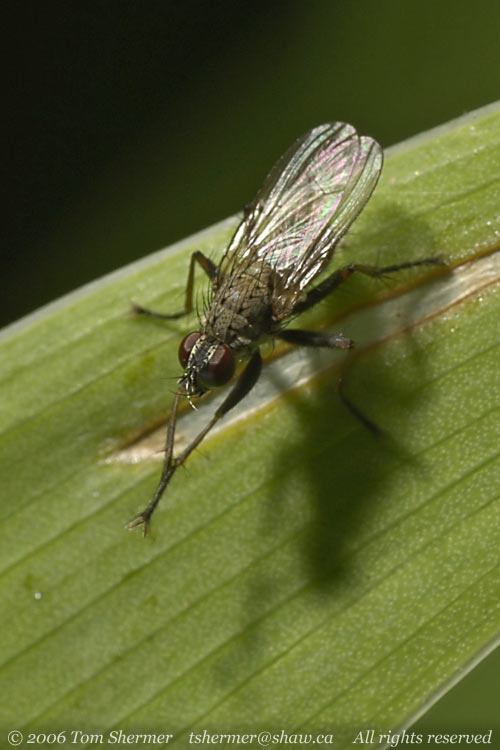 |
|
I haven't been able
to figure out what type of fly that is.
On the other hand,
a little bit of research sufficed for me to figure out that this
damselfly is a female Pacific Forktail.
|
|
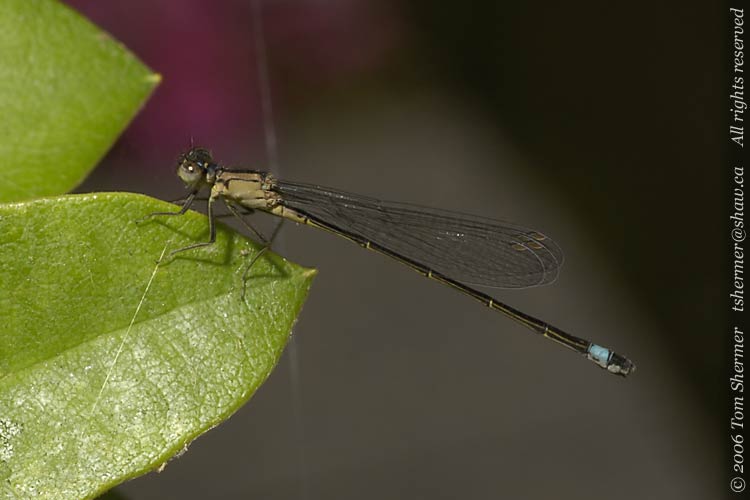 |
| And this
blue fellow is a male of the same species. |
|
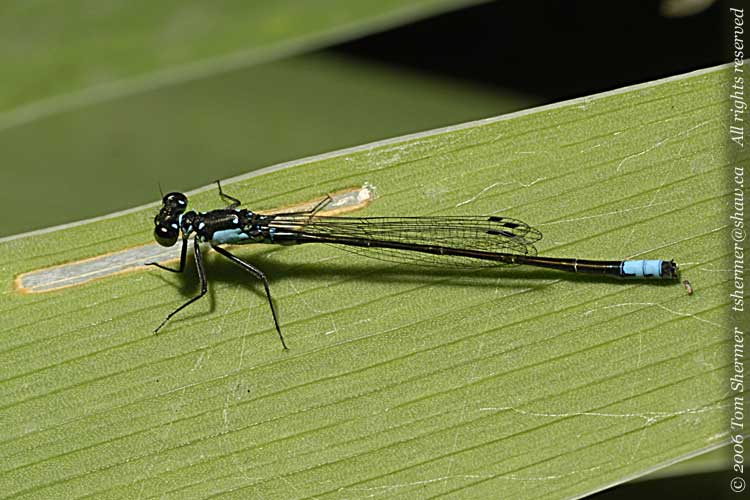 |
| Here's another
male Pacific Forktail from a little later, showing a hint of green
color on the bottom of the eyes and thorax. |
|
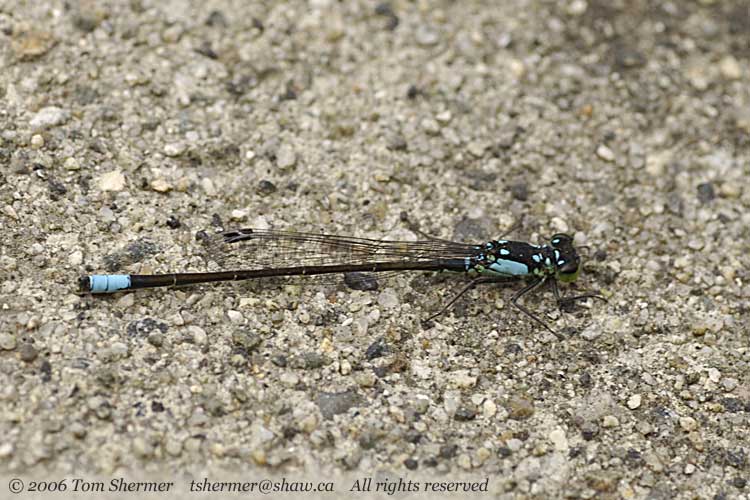 |
| On the far
side of the courtyard from where I live, I found some Gladiolas,
and with the flash I was able to catch a Honeybee heading in towards
them. |
|
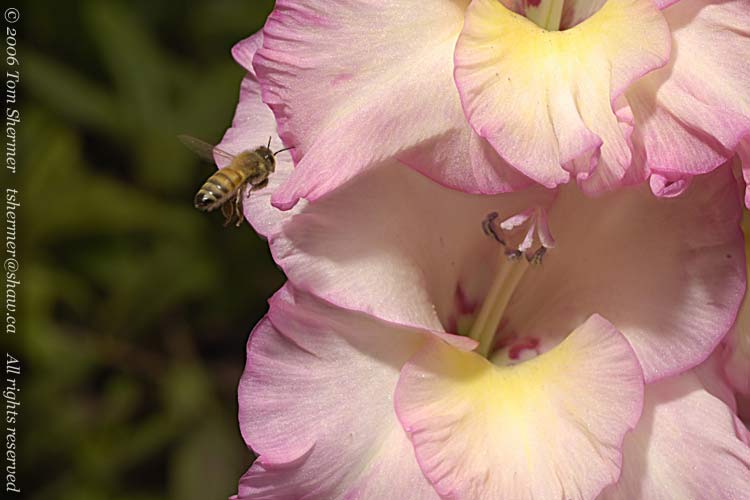 |
| I didn't
find much else in the courtyard, so I headed to the outer side of
the building. On some stairs there, I found a dead bug. A count
of the legs (five or six on this side) told me that it wasn't an
insect or a spider. This little critter belongs to the Isopod order
(Isopoda), which is part of the Malacostracan class (Malacostraca).
We commonly call 'em pillbugs or sowbugs or woodlice. Anyhow, the
little bumps all over this fellow's back identify him as the very
common Porcellio scaber. |
|
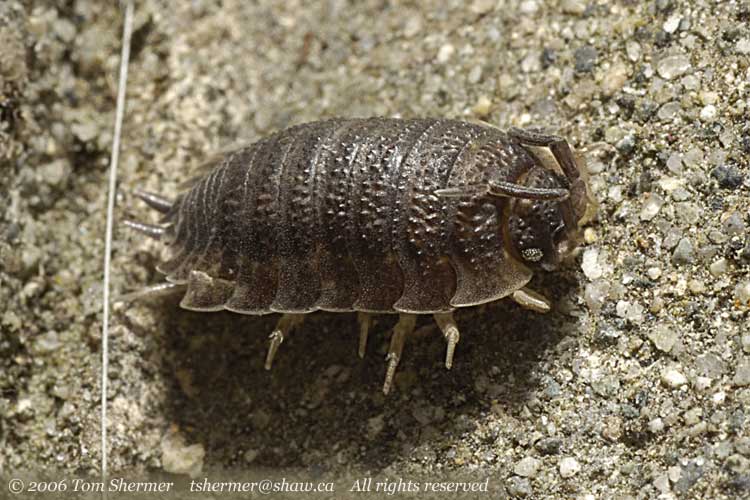 |
|
That did it for interesting
subjects on Saturday; the weather hadn't been great and I had
photojournal entries waiting to be put together back inside on
my computer, so I didn't stay long outside.
Uncharacteristically
short-winded,
Tom
|
|